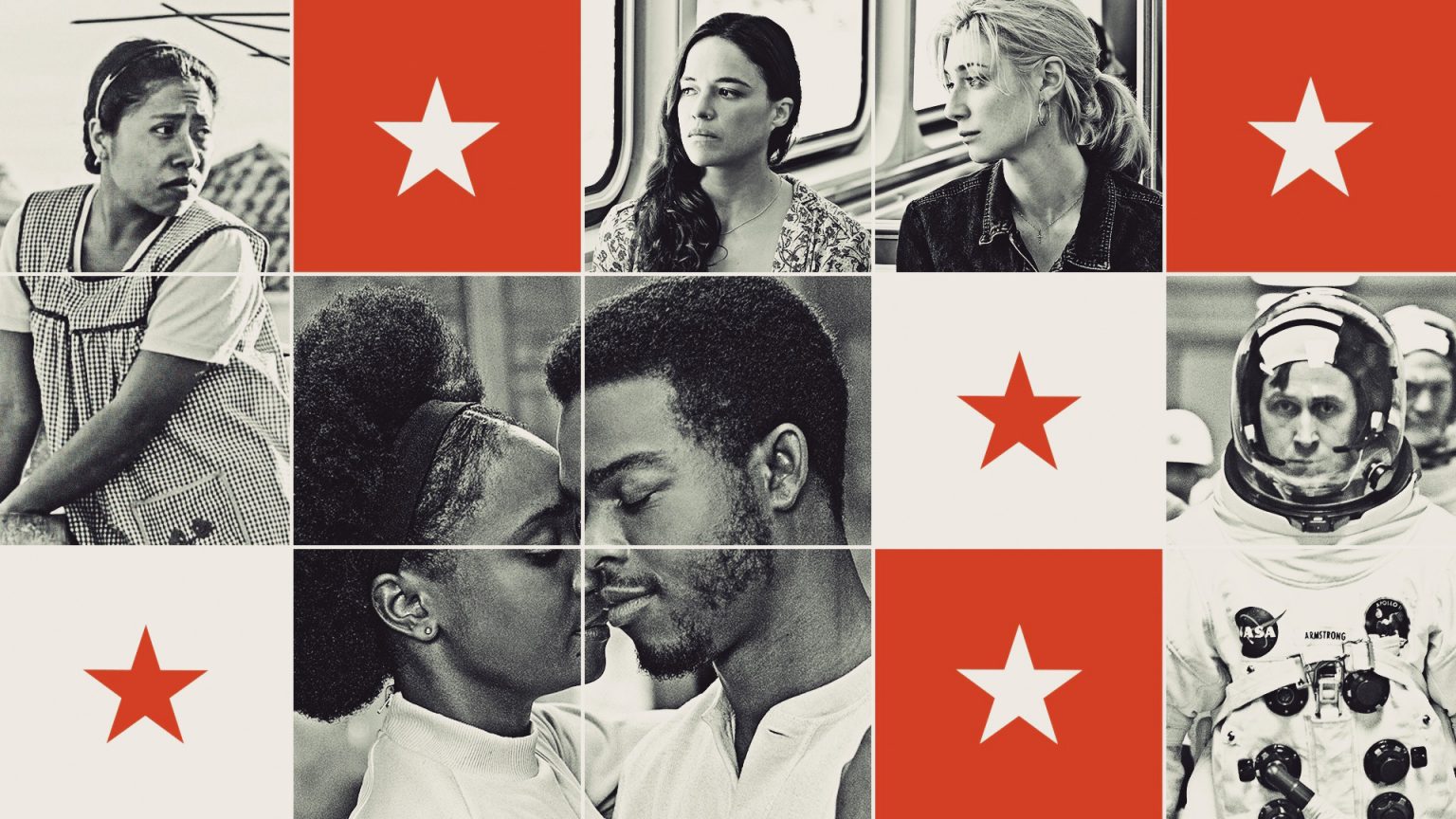In both 2014 and 2017 we were treated to two pairs of auteur directors fighting it out for Best Picture at the Academy Awards; in the first matchup, Steve McQueen’s 12 Years a Slave beat Alfonso Cuarón’s Gravity. Three years later, after an unforgettable announcement flub, Barry Jenkins’ Moonlight won over Damien Chazelle’s La La Land. In both cases, Cuarón’s and Chazelle’s technical wizardry earned them Best Director awards, while McQueen’s and Jenkins’ artistic dramas won Best Picture.
And in 2018 all four of these esteemed directors are releasing their follow-up films. Not only that, but each has taken a radically different approach to their most recent project, which suggests that there’s no one way for a filmmaker to follow up their award-winning work.
The quickest return is by Chazelle, who has followed up La La Land with First Man — a biopic detailing the traumas and training that propelled American astronaut Neil Armstrong to the moon. And while Justin Hurwitz’s score is sweeping, unlike Chazelle’s past films, music isn’t central to First Man. Instead, the grit of Whiplash is intertwined with the finesse of La La Land, resulting in a momentum that is even more of a hallmark of Chazelle’s filmography than music.
Steve McQueen’s thriller, Widows, is much more rapid-fire than his other, more stoic works, which tend to dwell on the harrowing devastation of his lead characters. And while the characters of Widows are certainly fuelled by devastation, the film’s tempo is wholly new for McQueen. Yet, it is also full of his signature flourishes, like long takes that swirl around his characters, accentuating key turning points in the film. As usual, McQueen never substitutes intensity for anything else, and Widows sprints through its runtime. This is McQueen in top form, and it will leave audiences exhausted and speechless.
Whereas Chazelle and McQueen have taken overt left turns, Barry Jenkins’ If Beale Street Could Talk is a profound expansion of Moonlight’s aesthetic. Jenkins has said that he worked on this James Baldwin adaptation at the same time as Moonlight, and the proof is in the pudding. Both films give their audiences time to soak in the beautifully composed images. The major difference is that while Moonlight revels in the human experience, inviting empathy by seeing the world through its subject’s eyes, Beale Street is a much more “literary film,” and not just because it was adapted from a novel. For example, Jenkins chose to include expositional narration that details the significance of certain scenarios, much like a novel might. The film vaults along at a quick pace, leaping back-and-forth between memories and the present. Altogether, it continues Jenkins’ aim of bringing unheard voices to the masses.
Alfonso Cuarón’s Roma represents the biggest departure from any of these directors’ previous, award-winning work. Gravity was a production marvel that soared through space. On the other hand, Roma (or, as I like to call it, the greatest film of 2018, bar none) brings everything back down to Earth, as we visit a year in the life of a housekeeper in 1970s Mexico. Cuarón’s technical innovation is still present, though here he uses it to enhance the film’s minute detail rather than to create the epic quality of Gravity. Thanks to brilliant sound editing and mixing, we are forced to tune into the film’s subtle narrative cues. Likewise, the film’s use of mise-en-scène effectively informs us of the period’s political climate. Here, blockbuster magic has been swapped for poetry, and it resonates with what is certainly Cuarón’s magnum opus.
Taken as a whole, in each of their follow-ups to their previous award-winning films, these four directors continued to expand the boundaries of their style. Chazelle, McQueen, Jenkins, and Cuarón didn’t merely settle with what they had accomplished by using the same formula twice. With First Man, Widows, Beale Street, and Roma we get four refreshing works that all bring a unique experience to the big screen. No matter who wins on Oscar night, we at Fandor are excited to see what else these directors have up their sleeves.
Watch Now: Before you watch their latest films, check out Barry Jenkins’ short films, and Damien Chazelle’s first feature Guy and Madeline on a Park Bench.




